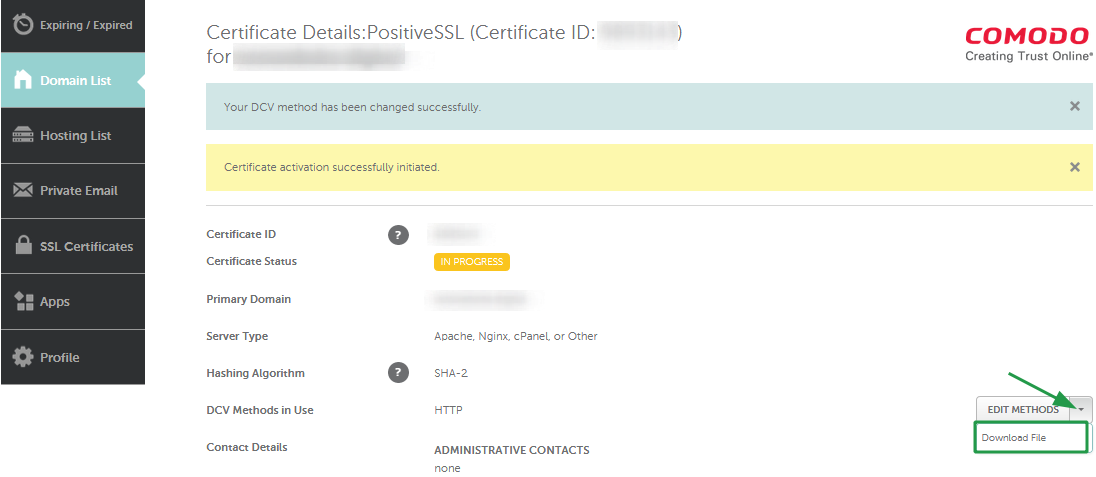Are you ready to secure your website and protect your visitors’ data? Activating SSL on your Namecheap account is a crucial step in establishing trust and ensuring privacy.
With cyber threats on the rise, having an SSL certificate is no longer an option—it’s a necessity. Imagine your visitors feeling safe and confident while browsing your site, knowing that their information is secure. In this guide, we’ll walk you through the simple steps to activate SSL on Namecheap.
You’ll discover how easy it is to enhance your website’s security and boost your search engine ranking, making your site more attractive to both users and search engines. Let’s dive in and fortify your online presence together!
Understanding Ssl Certificates
Activating SSL on Namecheap protects your website with a secure connection. Start by purchasing an SSL certificate from Namecheap. Follow their step-by-step guide to install and activate it on your domain, ensuring data safety.
Understanding SSL Certificates is crucial for anyone looking to secure their website. SSL, or Secure Sockets Layer, is a technology that encrypts data between your website and its visitors. This encryption ensures that sensitive information remains private, enhancing trust and safety. Imagine walking into a store where you feel your credit card information is safe; SSL does the same for your digital presence.What Is An Ssl Certificate?
An SSL certificate is like a digital passport for your website. It verifies your site’s identity and encrypts data. When visitors see the padlock icon in their browser, they know your site is secure. This builds confidence and encourages them to interact without fear. If you’ve ever hesitated to enter your credit card details online, you understand the value of this trust signal.Why Is Ssl Important?
SSL is important because it protects sensitive data, such as usernames, passwords, and credit card information. Without it, this data can be intercepted by hackers. But it’s not just about security; it’s also about credibility. Google prioritizes SSL-secured websites in search results, meaning your site is more likely to be discovered. Have you ever wondered why some sites rank higher than others?Types Of Ssl Certificates
There are several types of SSL certificates, ranging from basic to comprehensive. Domain Validated (DV) certificates offer basic encryption and are quick to set up. Organization Validated (OV) certificates provide more assurance, requiring verification of your business identity. Extended Validation (EV) certificates offer the highest level of trust, showing your business name in the browser’s address bar. Choosing the right one depends on your specific needs and budget.How Ssl Certificates Work
SSL certificates work by establishing a secure connection between your server and the visitor’s browser. When a visitor enters your site, the SSL certificate initiates a “handshake” that encrypts the data. This process is seamless and happens in milliseconds. Have you ever noticed that secure websites load just as quickly as unsecured ones? That’s the efficiency of SSL at work.Common Misconceptions About Ssl
Some believe SSL is only necessary for e-commerce sites. In reality, any site can benefit from the added security and SEO boost. Others think SSL is difficult to set up. While it does require some technical steps, services like Namecheap simplify the process. Remember when you first learned to ride a bike? It seemed daunting, but with guidance, it became second nature. Setting up SSL can be just as straightforward. Understanding SSL Certificates is not just about technology; it’s about building trust with your audience. As you embark on securing your website, consider the practical aspects and the peace of mind it provides. Ready to boost your site’s security?
Credit: www.youtube.com
Step-by-step Activation Process
Activating SSL on Namecheap can seem daunting. But with a step-by-step guide, the process becomes straightforward. SSL certificates are vital for website security, ensuring data remains private. Let’s break down the steps for a seamless activation.
Log In To Your Namecheap Account
Begin by logging into your Namecheap account. Use your credentials to access the dashboard. Once logged in, navigate to the ‘Dashboard’ section. This is where you manage your domain settings.
Select The Ssl Certificate
Next, locate the ‘SSL Certificates’ section. Here, you will see a list of your purchased certificates. Click on the one you wish to activate. This will guide you to the activation page.
Fill Out The Ssl Activation Form
On the activation page, a form awaits. Fill it with accurate details. This includes the domain name and certificate signing request (CSR). Ensure all information matches your domain registry.
Verify Domain Ownership
Verification is crucial. Choose a verification method that suits you. Options include email, DNS, or HTTP-based verification. Follow the instructions provided to complete this step.
Download And Install The Ssl Certificate
Once verified, download your SSL certificate. Install it on your web server. Namecheap provides guides for various server types. Follow these instructions for a successful installation.
Check Ssl Status
After installation, check your SSL status. Use online tools to confirm it’s active and secure. Look for the padlock symbol in your browser’s address bar. This indicates a successful activation.
Troubleshooting Common Issues
Learn how to activate SSL on Namecheap with straightforward steps. Ensure your website’s security by following simple instructions. Troubleshoot common issues easily with this guide.
Activating SSL on Namecheap is a straightforward process, but occasionally, you might encounter some hiccups. It’s common to feel a bit frustrated when things don’t go as planned. However, troubleshooting these issues can be easier than you think. By the end of this section, you’ll have the insights and confidence to tackle any problem that comes your way. ###Mismatch Between Ssl Certificate And Domain
One common issue is a mismatch between the SSL certificate and your domain name. This usually happens if you have entered the wrong domain name during the certificate setup. Double-check the domain name for any typos or missing elements like “www”. Consider the implications of a mismatch. Your visitors might see a security warning, which can deter them from exploring your site. Always ensure that the domain name on your SSL certificate matches your actual domain. ###Ssl Not Configured Properly
Sometimes, SSL certificates might not be configured properly on the server. This can lead to your site being flagged as insecure. Verify your server settings and ensure that the SSL certificate is installed correctly. Have you checked if your SSL is active? You might want to use online tools to verify if your SSL certificate is properly configured. These tools can highlight errors and suggest fixes. ###Mixed Content Errors
Mixed content errors occur when your site loads resources over both HTTP and HTTPS. This can compromise security, even if your SSL certificate is valid. Ensure all elements, like images and scripts, are loaded over HTTPS. Think about the user experience. Mixed content warnings can confuse visitors and affect your site’s credibility. Regularly audit your site for mixed content to maintain a secure environment. ###Certificate Expiry
SSL certificates need renewal. An expired certificate can lead to security warnings that drive users away. Always keep track of your certificate’s expiration date and renew it promptly. Are you prepared for renewal? Set reminders for your SSL certificate renewal dates to avoid any lapses. This proactive approach can save you from potential downtime and security risks. ###Cache Issues
Sometimes, SSL problems can be related to caching. If your browser cache holds old data, it might display outdated security warnings. Clear your browser cache and test your site again. How often do you clear your cache? Regular cache clearing can prevent many common SSL errors and improve your site’s performance. Make it a habit to refresh your cache periodically. By tackling these common SSL issues, you’ll ensure your site remains secure and trustworthy for visitors. Remember, a secure site not only protects your data but also builds trust and credibility with your audience.
Credit: www.youtube.com

Credit: www.namecheap.com
Frequently Asked Questions
How To Enable Ssl On Namecheap?
Log in to your Namecheap account. Go to the “SSL Certificates” section. Click “Activate” next to your certificate. Follow the prompts to generate a CSR. Install the SSL certificate on your server. Check SSL status to ensure it’s active.
How Do I Activate Ssl?
To activate SSL, purchase an SSL certificate from a trusted provider. Install it on your web server. Update your website to use HTTPS. Verify installation by checking the padlock icon in the browser’s address bar.
Is An Ssl Certificate Free On Namecheap?
Namecheap offers free SSL certificates for a limited period through their SSL activation service. Afterward, you’ll need to purchase one. They provide affordable options, ensuring website security and trust. Always check their website for current promotions and details on SSL plans.
Secure your site with Namecheap’s reliable SSL solutions.
How To Renew Ssl In Namecheap?
Log in to your Namecheap account. Navigate to the “SSL Certificates” section. Choose the certificate to renew. Follow the renewal instructions, then pay. Ensure the SSL is installed and activated properly.
Conclusion
Activating SSL on Namecheap is simple and essential for website security. It protects user data and boosts trust. Follow the steps carefully for a smooth process. Always check your SSL status regularly. This ensures continued protection for your site and visitors.
Need help? Namecheap support offers guidance. A secure site leads to happy users. And better search rankings. Remember, digital safety is crucial in today’s online world. Embrace SSL for a safer web experience. Keep your website secure and your visitors safe.
Your efforts will be rewarding. Enjoy peace of mind with SSL protection.
